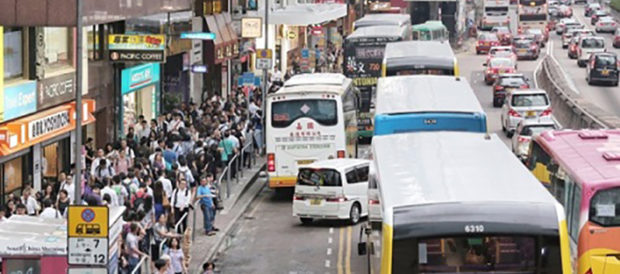Our transport system needs more competition not better plans
(Next Magazine, 2017/6/28, A002, Second Opinion, Bill Stacey)
Our government thinks the people are sheep. My grandfather was a sheep farmer. He complained, in colorful language, that sheep were the least intelligent animals, incapable of making decisions and even of trying to save their own lives. So sheep are herded between paddocks for pasture, herded away from danger, and herded to shearing sheds or to slaughter. Sheep do not make decisions for themselves.
Our government has designed a transport system that treats the people as sheep. They have outlined this approach in the Public Transport Strategy Study, released last week. It is an approach devoid of citizens as decision makers, and devoid of choice, human behavior, and market as well as cost considerations. It is an exercise in careful central planning worthy of the controlling institutions in an Orwell novel.
The singular goal of the government’s strategy is to crush the private car and any form of transport that is not controlled by the plan. The private car is the enemy, a monster that if not controlled will consume us all. To be fair, its strategy does allow for a choice: the planners, oblivious to our climate and ageing population, will encourage us to walk more.
Save perhaps for walking, every permitted mode of transport is controlled and planned. The most favored is the railway system. Our shepherds love their perceived efficiency, predictability, and total controllability. Franchised buses, whose routes, rules, and fares are all firmly in the planner’s grip, come next. Public light buses are tolerated, but with a lesser role in this farmyard hierarchy. Near the bottom is the taxi, providing “personalized, point-to-point” services for those troublesome few who stray from the flock. Not that our planners like the taxi – they are full of complaints that perpetual licenses limit their legal scope for control.
Every mode of transport has its place in the plan. There might be private ownership in form, but not in substance. There is some competition, but strictly guided and controlled. Room for innovation is strictly proscribed. Private cars are simply a nuisance to be minimized. They cause congestion and pollution and demand space.
So as a result, there is no room for modern ride-hailing apps (Uber, Lyft, or Didi Chuxing) or their business models. They are not in the plan. For these innovative services, pricing varies with demand by the second; the number of vehicles in service goes up and down during the day; existing resources are better utilized; people may find a new income source; services are closely monitored by users and improved; inferior providers are weeded out of the industry; and rides can easily be shared.
That is just the start of a transport revolution. These AI-coordinated, algorithm-driven services prepare for a future of “transport as a service” that might involve some private cars or even driverless vehicles in complex networks controlled by private and corporate ownership. That future could keep vehicles on the road all day and night, with far less need for parking and better coordinated traffic. These could be private and point-to-point services with variety, class, flexibility, and much lower costs.
This is perfect for Hong Kong, but it is not in the plan. Instead there is some crack-brained scheme for more expensive taxi “franchises”, giving monopoly rights to three franchise owners to operate 200 vehicles each in a simulacrum of a modern ride-hailing service.
There are some pretty good elements in our transport system. The MTR is a good service, kept honest by competing internationally. Trams and ferries are part of our heritage. However, the private cars of today, or the market-driven personalized transport networks of tomorrow, are not the enemy. What we need is competition, flexibility, and fair prices, not better plans. That might mean some services fade away. The taxi might not be the future. Licenses and franchises might lose value.
Planners say what is not permitted is prohibited. This is not liberalism. This is not freedom. This is not Hong Kong.
Bill Stacey
Director
The Lion Rock Institute

